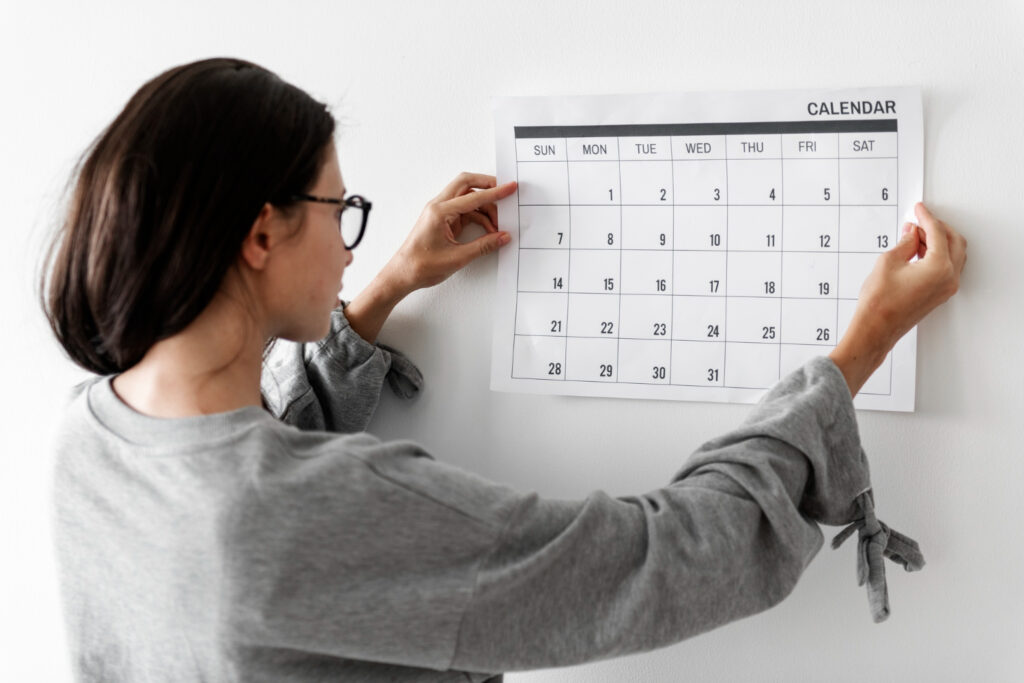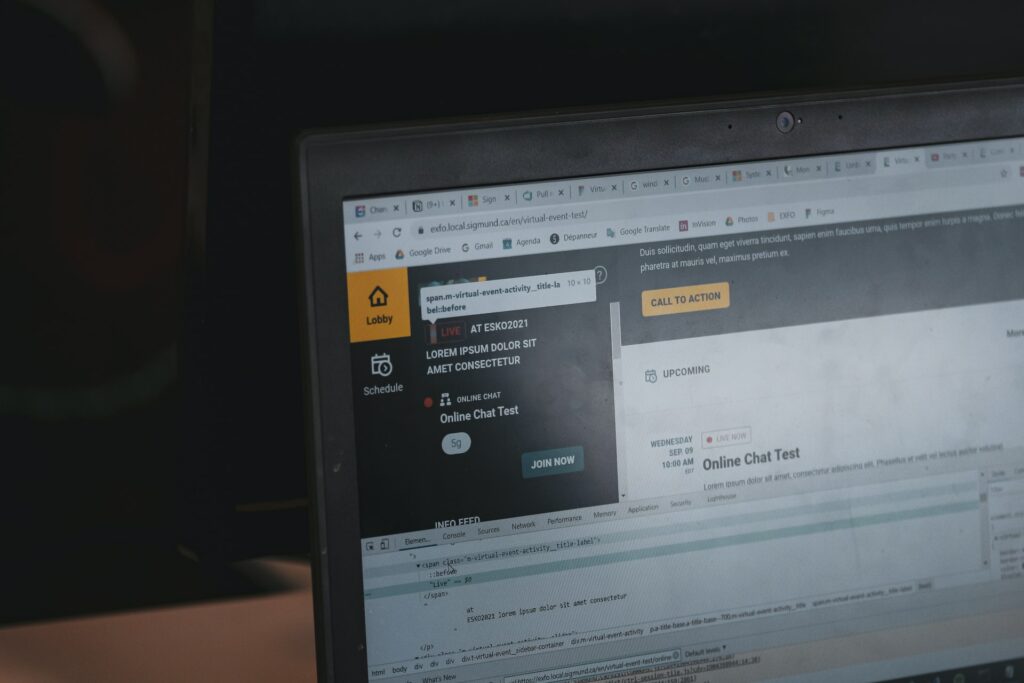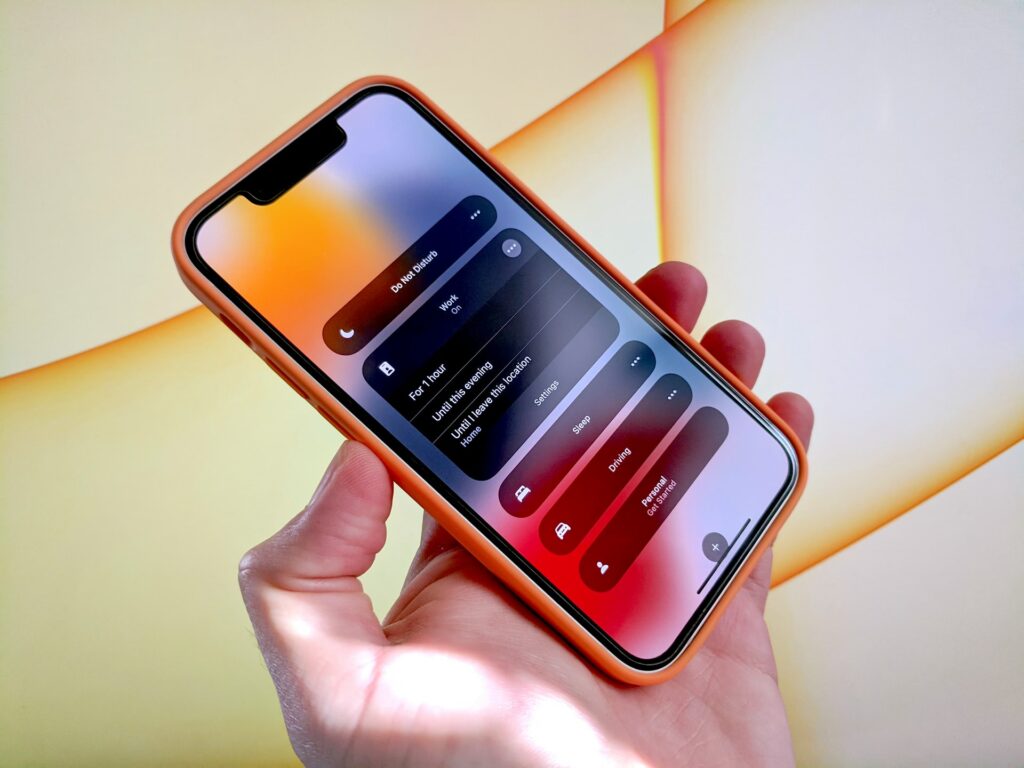Have you ever tried to finish an assignment but ended up on an Instagram scrolling spree or down a YouTube video blackhole instead? Sounds like a typical student problem, right? 😩
College students are tempted by smartphone-related distractions 28 times a day on average, which can throw a wrench into your plans to prepare early for midterms or polish a research paper.
Here are 13 solid ways to skip the distractions and get down to business. 💪
- 1. Establish a Study Routine ⌚
- 2. Track How You Spend Your Time ⏰
- 3. Organize Your Tasks With a To-Do List 📝
- 4. Keep Open Internet Tabs to a Minimum 🗂
- 5. Install Study Apps That Block Distracting Websites ⛔️
- 6. Put Your Phone on Do Not Disturb 📱
- 7. Allow Yourself to Take Breaks in Between Study Sessions 💆🏽♀️
- 8. Hunt Down the Perfect Study Spot 📚
- 9. Get Rid of Unwanted Noise 🤫
- 10. Meet Your Basic Physical Needs 🍽
- 11. Break Down Big Lessons or Goals Into Smaller Tasks 👨🏻💻
- 12. Focus On One Goal at a Time 💯
- 13. Choose Different Study Strategies 🧠
1. Establish a Study Routine ⌚
If you have an attention span shorter than a goldfish, having a dependable study routine is a fantastic way to set the tone for the rest of your day.
Since juggling tasks often means things fall through the cracks, crafting a schedule will help you manage your time and focus.

Identify your priorities the night before, consider how long it will take to accomplish each task, and split your day into different blocks (one for each task). This way, you can stay focused on finishing the job at hand before moving on to the next one.
2. Track How You Spend Your Time ⏰
Are there times when you simply don’t have enough hours in a day to get your coursework done? We can relate! 😢 Before chalking it up to having a full calendar, you should consider that you may not be using your time efficiently.
You might be surprised at how often you spend time on distractions (like TikTok) rather than your priorities.

One way to check if you’re wasting precious hours would be to use the screen time feature on your phone. It lists the apps which get more love and lets you know which activities you need to double down on or limit.
If you find yourself consistently sidetracked by notifications, curb the habit by only accessing entertainment or social media during your designated study breaks.
TIP: Install a Pomodoro timer app to keep you on a strict routine. Do other errands or check social media only when the timer runs out.
3. Organize Your Tasks With a To-Do List 📝
Writing down your daily duties can help you to keep track of everything that needs to be done — whether it’s two hours or two days from now.
Being scatterbrained when studying is a major distraction. To get that A, try sticking to a reliable timetable.

Pending deadlines and projects are easily sorted when you have a handy planner or a corkboard that tells you what is urgent and what can be put off until tomorrow.
As experts say, jotting things down by hand improves your focus and memory, so it doesn’t hurt to incorporate this into your study routine.
4. Keep Open Internet Tabs to a Minimum 🗂
It’s almost impossible to find students who don’t use the internet during study hours. But you can’t deny that your biggest source of information is also your biggest source of distraction. 💀
While our laptops and tablets are great productivity tools, let’s face it: we always find ourselves on Reddit, TikTok, or YouTube. Before you know it, hours have passed, and your studies are long forgotten!

A trick to resist temptation is to find and open the materials you need when you begin studying and don’t open any more tabs (or even turn off your WiFi if necessary) until you’ve finished. 💻
5. Install Study Apps That Block Distracting Websites ⛔️
Can’t trust yourself to limit your social media intake? You aren’t alone!
Downloading or enabling study apps that prevent you from accessing these distractions can be a lifesaver. It’s a good thing that there are tons of options to choose from! 📃

For example, Cold Turkey is a browser extension that allows you to block websites or the entire internet while Forest lets a virtual tree grow — right up until you leave the app.
READ MORE: 17 Study Apps Every College Student Needs to Have
6. Put Your Phone on Do Not Disturb 📱
Text messages, notifications, emails, and the strong urge to know what’s going on in the world — these are what make your phone your enemy when you’re trying to study.
How can you overcome this challenge? Place your phone in “Do Not Disturb” mode and put the device far from your reach. 🔇

Now, we know that some teachers may be trying to get hold of you. Just so you don’t miss important reminders or instructions, you should plan to check your messages and emails after a set period, for example, every two hours.
If you follow our advice, it’s also a good idea to alert your family and close friends when you are studying so they know why you can’t immediately reply or answer.
You can also check if your phone has an emergency or VIP feature for people who really, really have something important to say that overrides the “Do Not Disturb” function.
7. Allow Yourself to Take Breaks in Between Study Sessions 💆🏽♀️
Scheduling breathers into your study routine may sound counterintuitive, but these pauses give you a much-needed moment to recharge ahead of your next bout of coursework (and maybe help avoid senioritis).
If you want to perform at your absolute best, it’s necessary to have some “me time,” even if it’s just a few minutes between study sessions. Working yourself to the bone leaves you unfocused and more vulnerable to distractions.

So, after a set amount of time spent hitting the books, take a 15 to 20-minute break where you can watch a video, talk to friends, prepare a snack, or check social media before getting back to work. Your attention span will thank you! 😉
8. Hunt Down the Perfect Study Spot 📚
One of the best ways to reduce distractions while studying is to have a workspace that caters to your needs.
Do you flourish in a quiet, secluded workspace? Or perhaps what you need is to set up shop outside where the air is fresh, and you have day-to-day sounds in the background?

You should try different areas to discover what gives you the best advantage. But remember, different situations and assignments could call for different study spaces! 📚
TIP: Cleaning off your station, preparing all your course materials, and choosing a study playlist are excellent first tasks to kick off a productive day in your chosen study spot. 😏
9. Get Rid of Unwanted Noise 🤫
Name something more distracting to students than noise.
Whether it’s loud construction work behind your house, banging pots and pans in the kitchen, screaming siblings in the next room, or the laughter of your dormmates having fun without you, these noises can be a nightmare when you’re trying to concentrate.
To eliminate unnecessary and distracting sounds, use noise-canceling headphones or heavy-duty earplugs.

But there’s always an exception! For students who find silence just as distracting as noises, we recommend playing some white noise as you study or other ambient music that helps you focus.
READ MORE: 10 Study Music Playlists for Students to Focus to the Max
10. Meet Your Basic Physical Needs 🍽
Being in tip-top condition dictates how well you’ll be able to concentrate on the task at hand.
Trust us, understanding more than two paragraphs of your textbook can be monumentally tricky if your stomach is grumbling or you are sleep-deprived. 💤

To make sure you have copious amounts of energy, eat a hearty breakfast and keep good, healthy snacks on hand. It’s also a good idea to have a big water bottle by your side to keep yourself hydrated.
In terms of sleep, make sure you achieve your required eight hours by having a bedtime routine that helps you unwind, avoiding caffeine after 3 pm, and buying blackout curtains or an eye mask.
As a busy college student, it’s easy to forgo meals and sleep if you think you have better things to do. Just remember, if you take care of your body, your academic record will thank you!
READ MORE: Sleeping Habits Play Crucial Role in College Grades
11. Break Down Big Lessons or Goals Into Smaller Tasks 👨🏻💻
More often than not, tackling big goals can leave you exhausted and, in turn, vulnerable to distractions.
Some students look at their to-do list and see 10 impossible things which stop them in their tracks (and nothing gets done). 😫
You can set yourself up for success by breaking down extensive projects into smaller, more manageable tasks.

Need to finish two to three books in a week? Try to complete a certain number of pages every hour. Writing a 20-page term paper? Allot two days for research and have a goal of writing two to three pages per day.
READ MORE: 11 Top Online Study Tools Every Student Needs in 2022
12. Focus On One Goal at a Time 💯
Switching from task to task may sound like a good idea, but it could do more harm than good. You might be a little confident about your ability to multitask, but one study shows that doing two things at the same time reduces accuracy in results.

It’s tempting to get as many things done in one day, but being preoccupied with other deadlines while you’re currently working on something else is also a form of distraction. 😬
What you can do is plan a study schedule that prioritizes tasks that are both important and urgent. Give each goal ample time and move to the next activity when you’re finished.
13. Choose Different Study Strategies 🧠
One surefire way to beat distraction is changing things up! Introducing a new study strategy into your routine can refresh your focus and drive you to continue working for a longer period of time.
We recommend experimenting with different techniques each day, especially at times when you feel like you’re losing steam. 🚂
You’ve probably already heard about turning tasks into games and incorporating rewards as motivation, but there are so many other study strategies you can try!

Here are some examples that you can use to boost your concentration:
The Pomodoro Technique
Split your day into 25-minute chunks with five-minute breaks in between. After doing about four sets, you’re allowed a longer rest period of about 25 to 30 minutes.
The Spaced Practice
Study the materials over an extended period instead of trying to absorb it all in less than 24 hours. When exam dates near, you can revisit tougher lessons to be refreshed.
The Feynman Technique
Write the theory or subject you want to learn about as simply as you can on a piece of paper. Review your explanation and check for any mistakes until you get the right interpretation by yourself. Once you’ve nailed one idea, move on to the next concept!
READ MORE: 11 Top Study Methods That Are Scientifically Proven to Work
While we’ve compiled our top tips to make your path more straightforward, it’s up to you to follow through.
How well you do in college can open the doors for greater opportunities. It’s time to make sure that you don’t waste your chances. 😉 Good luck!


